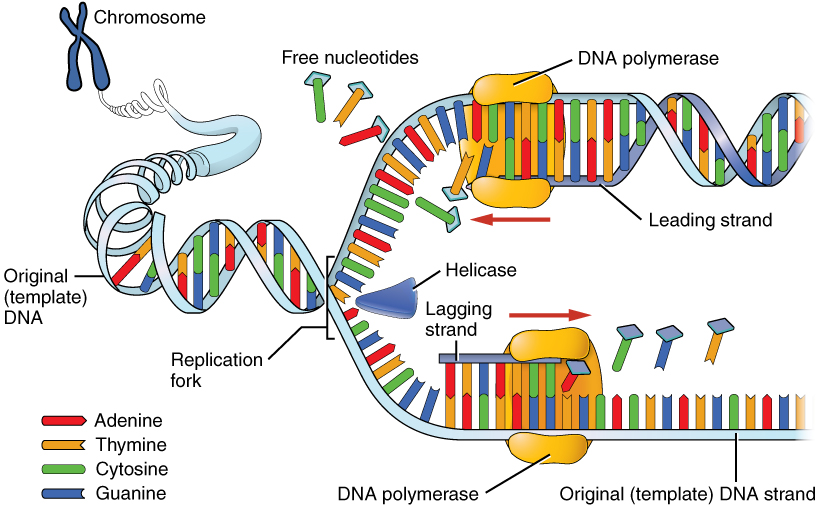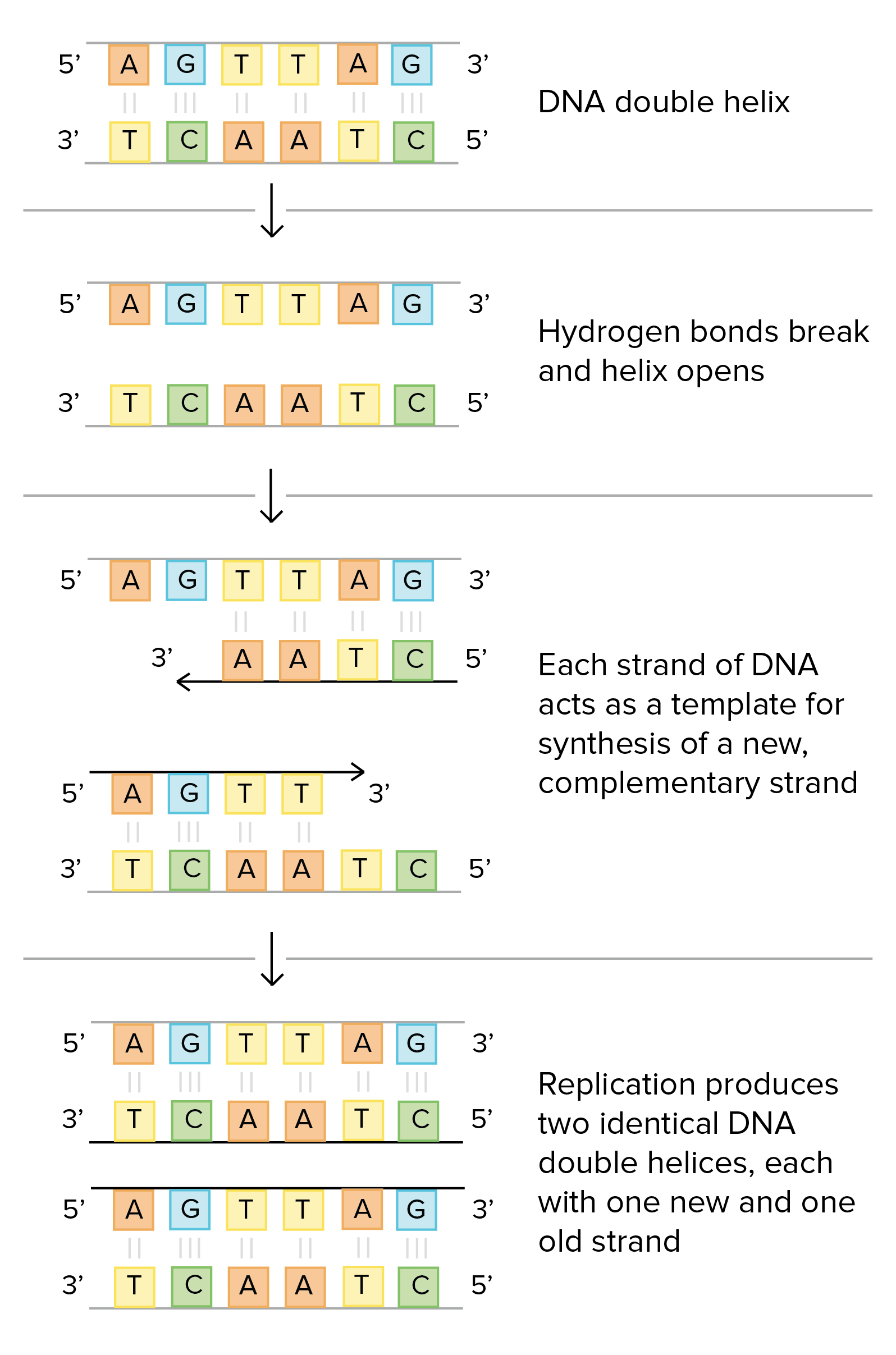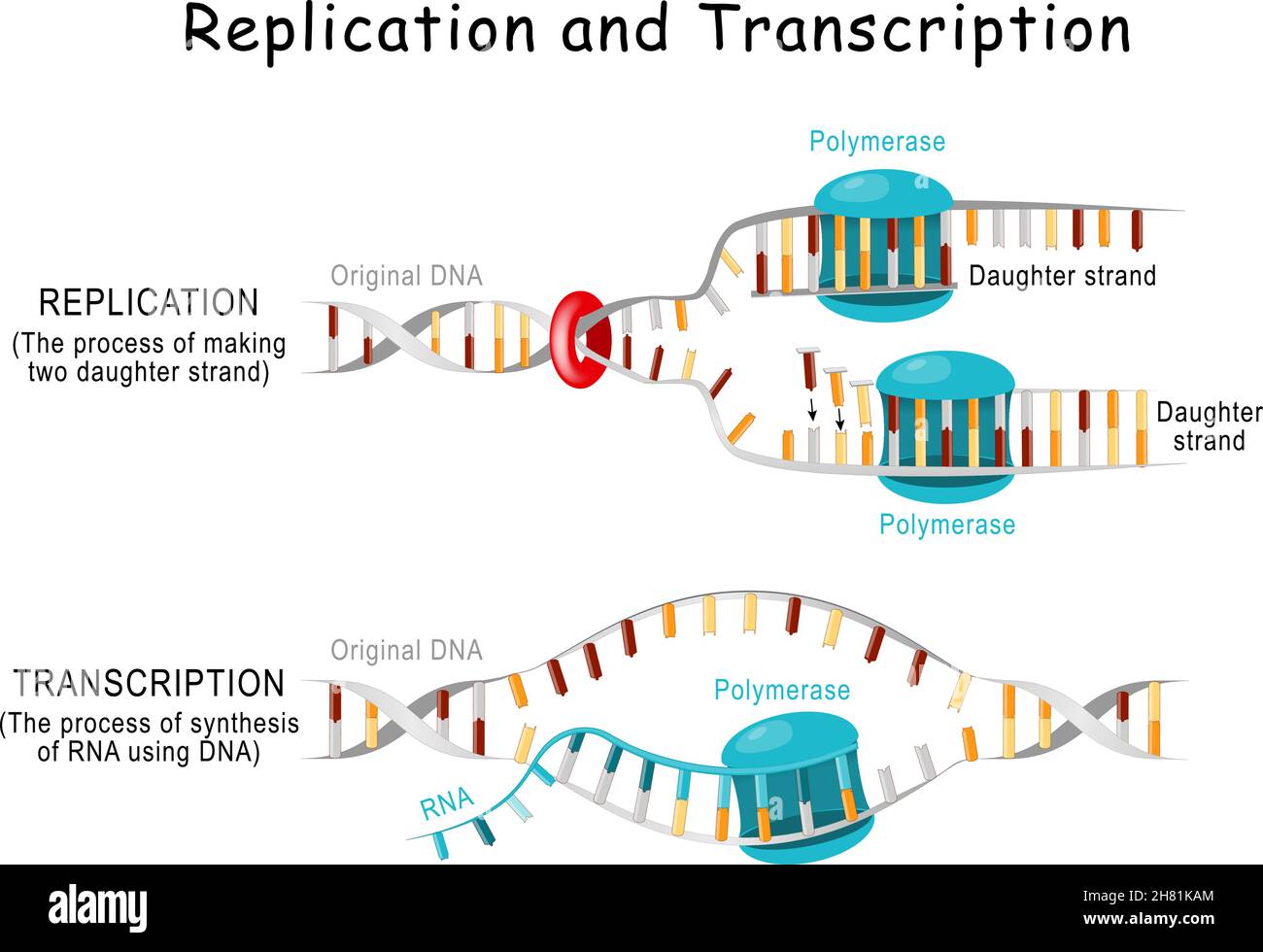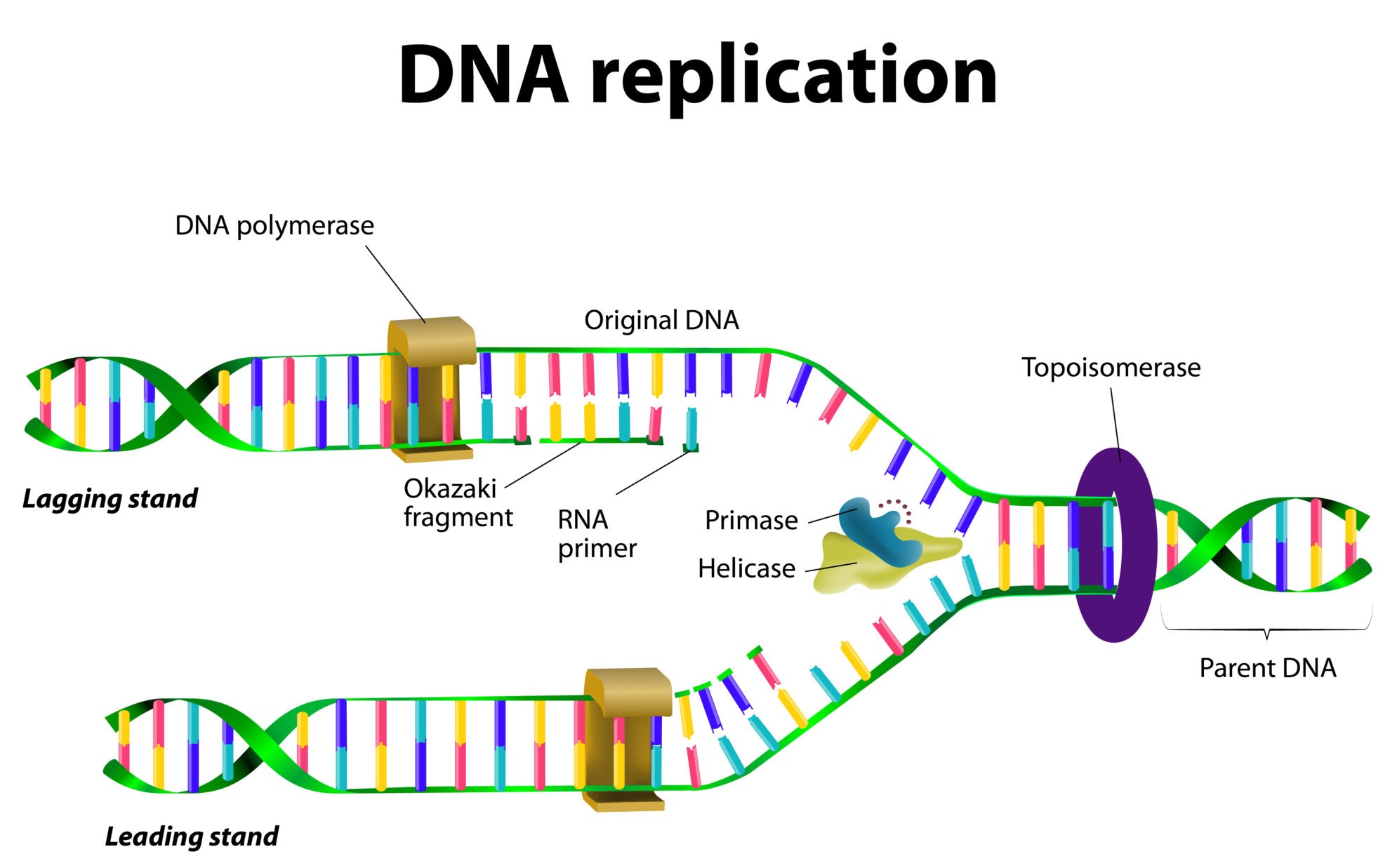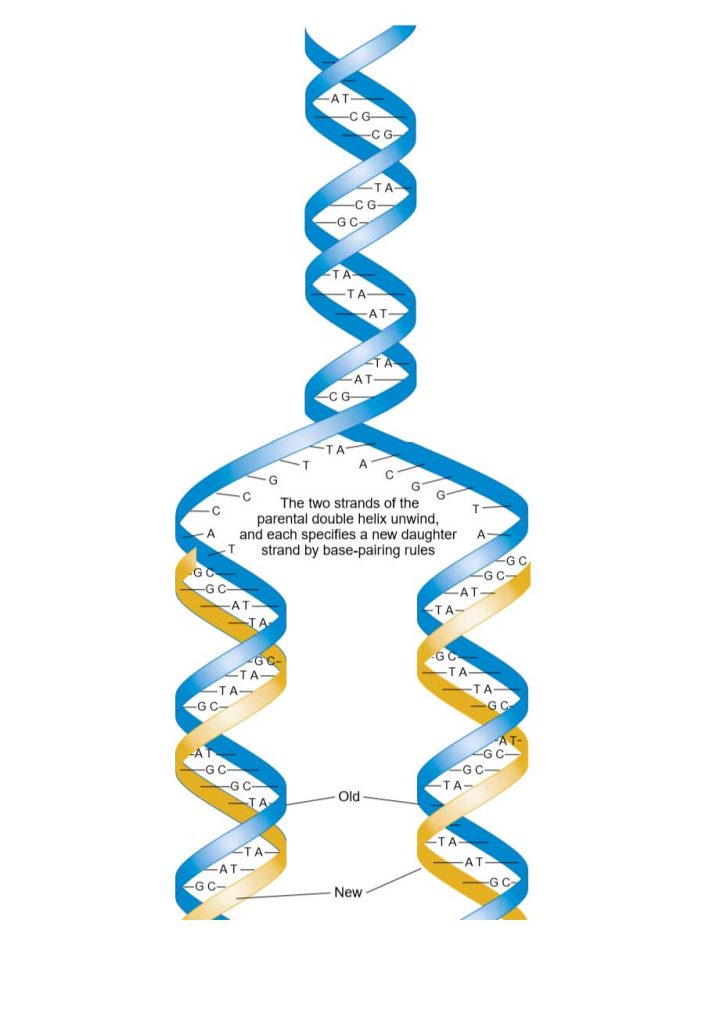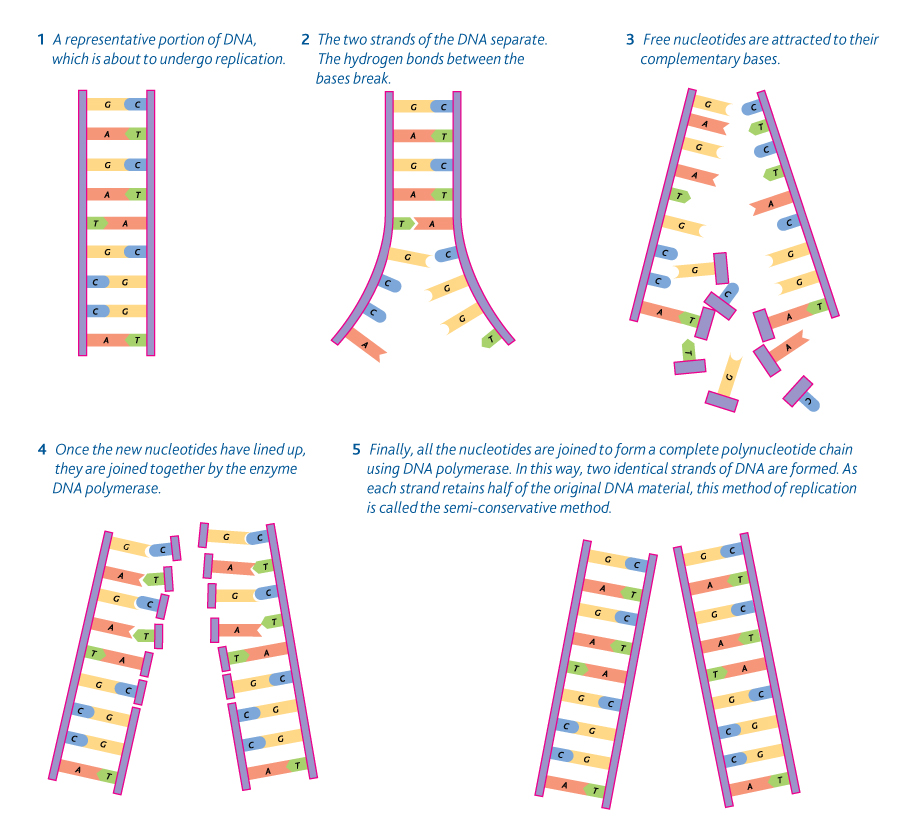Template For Dna Replication
Template For Dna Replication - Web there were three models suggested for dna replication: Find out how okazaki fragments are formed on the lagging strand and how they are joined by dna ligase. Web learn how dna replication occurs in three main steps: Web learn how meselson and stahl tested the three models of dna replication using isotope labels and density gradient centrifugation. Find out the roles of primers, polymerases, helicases and other proteins in the initiation, unwinding, primer synthesis. Web learn how a cell makes an identical copy of its dna using the process of dna replication. Web learn how a cell makes an identical copy of its dna using enzymes and rna. Web learn how dna replication occurs in three major steps: Find out how their experiment confirmed the semiconservative. Web as discussed in chapter 3, dna replication is a semiconservative process in which each parental strand serves as a template for the synthesis of a new complementary daughter strand. Describe the process of dna replication and the functions of the enzymes involved; It may be related to the domains *.kastatic.org and *.kasandbox.org being blocked by your web filter. Web as discussed in chapter 3, dna replication is a semiconservative process in which each parental strand serves as a template for the synthesis of a new complementary daughter strand. Web learn how dna replication occurs in three major steps: Web the web page you requested is not available due to an error. Web learn how a cell makes an identical copy of its dna using the process of dna replication. See a diagrammatic representation of dna replication and the difference between normal and sickle red blood cells. Each new double strand consists of one parental strand and one new daughter strand. Web the web page you requested is not available due to a technical issue. Find out how their experiment confirmed the semiconservative. Web in dna replication, each strand of the original dna serves as a template for the synthesis of a complementary strand. Identify the differences between dna replication in bacteria and. The new strand will be complementary to the parental or “old” strand. Web learn how dna is replicated in eukaryotes in three stages: Find out how their experiment confirmed the semiconservative. The double helix is un'zipped' and unwound, then each separated strand (turquoise) acts as a template for replicating a new partner strand (green). After replication, each dna has one parental or “old” strand, and one daughter or “new” strand. In an extensive study, dna was used as a template to align metallic clusters along its backbone for the nucleation of a continuous metallic nanowire [4]. Web as discussed in chapter 3, dna replication is a semiconservative process in which each parental strand serves as a template for the synthesis of a new complementary daughter strand. See the stages of unwinding, synthesis and sealing of dna strands with diagrams and examples. The cell's dna is copied during the separation phase, when the double helix. Dna polymerase is the primary enzyme needed for replication. Web learn how dna replication occurs during cellular division, where two identical molecules of dna are created from a single molecule. Find out how their experiment confirmed the semiconservative. Web the web page you requested is not available. In an extensive study, dna was used as a template to align metallic clusters along its backbone for the nucleation of a continuous metallic nanowire [4]. Web in dna replication, each strand of the original dna serves as a template for the synthesis of a complementary strand. Web as discussed in chapter 3, dna replication is a semiconservative process in. Find out the role of dna polymerase, primer, and proofreading in the replication process. Separation, priming, and assembly of the new strands. Describe the process of dna replication and the functions of the enzymes involved; Web explain the meaning of semiconservative dna replication; Web learn about the structure of dna, the three stages of dna replication (initiation, elongation and termination). See a diagrammatic representation of dna replication and the difference between normal and sickle red blood cells. In an extensive study, dna was used as a template to align metallic clusters along its backbone for the nucleation of a continuous metallic nanowire [4]. Web the web page you requested is not available due to a technical issue. Web learn how. This is essential for cell division and genetic inheritance, and. Web learn how dna replication occurs in three main steps: Nucleotides (bases) are matched to synthesize the new partner strands into two new double helices. Web in dna replication, each strand of the original dna serves as a template for the synthesis of a complementary strand. Separation, priming, and assembly. Explore the structure, process, and proteins of dna replication with diagrams and examples. Web learn how meselson and stahl tested the three models of dna replication using isotope labels and density gradient centrifugation. See the stages of unwinding, synthesis and sealing of dna strands with diagrams and examples. This is essential for cell division and genetic inheritance, and. Web there. Web learn how dna replicates itself using an existing strand as a template. Dna polymerase is the primary enzyme needed for replication. In transcription, a segment of dna serves as a template for the synthesis of. Describe the process of dna replication and the functions of the enzymes involved; Web the web page you requested is not available due to. Explain why okazaki fragments are formed; Separation, priming, and assembly of the new strands. Describe the process of dna replication and the functions of the enzymes involved; Web learn how a cell makes an identical copy of its dna using the process of dna replication. This is essential for cell division and genetic inheritance, and. Web learn how meselson and stahl tested the three models of dna replication using isotope labels and density gradient centrifugation. Identify the differences between dna replication in bacteria and. Web learn how dna replicates itself using an existing strand as a template. Web in dna replication, each strand of the original dna serves as a template for the synthesis of. Find out how their experiment confirmed the semiconservative. See the stages of unwinding, synthesis and sealing of dna strands with diagrams and examples. In an extensive study, dna was used as a template to align metallic clusters along its backbone for the nucleation of a continuous metallic nanowire [4]. In transcription, a segment of dna serves as a template for. Dna polymerase is the primary enzyme needed for replication. It may be related to the domains *.kastatic.org and *.kasandbox.org being blocked by your web filter. Web learn how meselson and stahl tested the three models of dna replication using isotope labels and density gradient centrifugation. The double helix is un'zipped' and unwound, then each separated strand (turquoise) acts as a template for replicating a new partner strand (green). After replication, each dna has one parental or “old” strand, and one daughter or “new” strand. Separation, priming, and assembly of the new strands. Web learn how dna replicates itself using an existing strand as a template. Web learn how dna replication occurs in three main steps: In an extensive study, dna was used as a template to align metallic clusters along its backbone for the nucleation of a continuous metallic nanowire [4]. See the diagram of dna structure and the enzymes involved in the process. See the diagram of replication fork formation, primer binding, elongation, and termination. Web in dna replication, each strand of the original dna serves as a template for the synthesis of a complementary strand. The new strand will be complementary to the parental or “old” strand. Identify the differences between dna replication in bacteria and. Explore the structure, process, and proteins of dna replication with diagrams and examples. Find out the role of dna polymerase, primer, and proofreading in the replication process.This image shows the process of DNA replication. A chromosome is shown
Steps of DNA Replication Infographic Template Visme
What Acts As The Template In Dna Replication
DNA Replication and Transcription. Steps. double helix is unwound. Each
DNA Structure & DNA Replication Biology Online Tutorial
Dna Replication Template
DNA Replication Study Solutions
Replication Britannica
Dna Replication Template
Simple Dna Replication Diagram
Web Learn How Dna Replication Occurs During Cellular Division, Where Two Identical Molecules Of Dna Are Created From A Single Molecule.
See The Stages Of Unwinding, Synthesis And Sealing Of Dna Strands With Diagrams And Examples.
Web Learn How A Cell Makes An Identical Copy Of Its Dna Using Enzymes And Rna.
This Is Essential For Cell Division And Genetic Inheritance, And.
Related Post:
